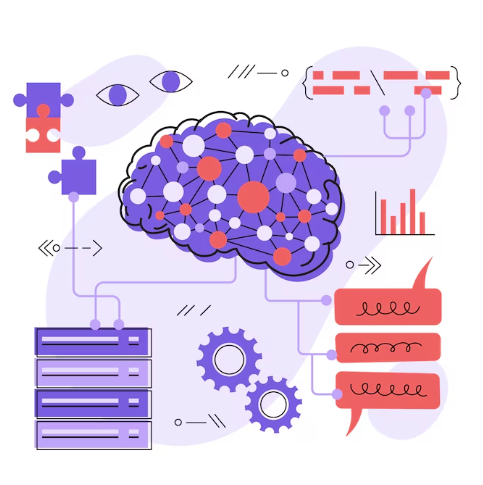Understanding Reinforcement Learning: Unveiling the Foundations of AI

In the realm of artificial intelligence, the concept of Reinforcement Learning (RL) stands as a pivotal building block. It is the core principle behind machines learning to make decisions, interact with their environments, and continuously improve their performance. In this comprehensive guide, we delve deep into the intricacies of Reinforcement Learning, equipping you with the knowledge to understand its nuances and significance in the AI landscape.
Introduction to Reinforcement Learning
Reinforcement Learning is a subfield of machine learning where an agent learns to make sequential decisions by interacting with an environment. It closely mimics the way humans learn through trial and error. The key components of RL include:
1. Agent
The agent is the learner or decision-maker. It interacts with the environment and takes actions to achieve specific goals.
2. Environment
The environment represents the external context with which the agent interacts. It is everything the agent is not in control of but can influence through its actions.
3. Actions
Actions are the choices available to the agent in a given state of the environment. These actions have consequences and impact the agent's future interactions.
4. Rewards
Rewards are numerical values that the agent receives as feedback for its actions. The goal of the agent is to maximize its cumulative reward over time.
The Reinforcement Learning Process
Understanding the RL process is essential to grasp its significance in AI development. It typically follows these steps:
1. Initialization
The agent initializes its knowledge and begins in a certain state within the environment.
2. Action Selection
The agent selects an action based on its current state and the policy it follows.
3. Interaction
The agent's chosen action leads to a change in the environment, transitioning it to a new state.
4. Reward Reception
After each action, the agent receives a reward from the environment, indicating the immediate outcome of its decision.
5. Learning
The agent updates its knowledge and decision-making process based on the received reward and new environmental states.
6. Iteration
The process repeats, with the agent continually learning and adapting its actions to maximize cumulative rewards.
Key Concepts in Reinforcement Learning
To gain a deeper understanding of RL, it's crucial to explore some key concepts:
1. Markov Decision Process (MDP)
MDP is a formal framework that defines the RL problem. It consists of states, actions, transition probabilities, and rewards.
2. Policy
A policy is a strategy that guides the agent's decision-making process. It maps states to actions and determines the agent's behavior.
3. Value Functions
Value functions help the agent assess the desirability of states and state-action pairs. Two fundamental value functions are the state-value function (V) and the action-value function (Q).
4. Exploration vs. Exploitation
One of the key challenges in RL is finding the right balance between exploring new actions and exploiting known actions to maximize rewards.
Applications of Reinforcement Learning
Reinforcement Learning has a wide range of practical applications across various domains:
1. Autonomous Driving
RL algorithms are used to train self-driving cars to make real-time decisions on the road.
2. Game Playing
RL has achieved remarkable success in mastering complex games like chess, Go, and video games.
3. Healthcare
In healthcare, RL aids in optimizing treatment plans and drug discovery.
4. Robotics
Robots are trained using RL to perform tasks in dynamic and unstructured environments.
Conclusion
In this comprehensive exploration of Reinforcement Learning, we've uncovered the foundational principles that underpin AI decision-making. Understanding the interplay between agents, environments, actions, and rewards is crucial for harnessing the full potential of RL in various applications.
As the AI landscape continues to evolve, mastering Reinforcement Learning is not just an advantage; it's a necessity. With its wide-ranging applications and transformative potential, RL is poised to shape the future of AI-driven technologies. So, delve deeper into the world of RL, and unlock the doors to innovation and progress in the field of artificial intelligence.


